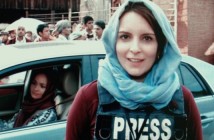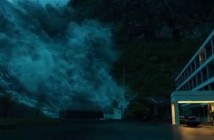A relentless look at the front line during the Korean War (1950-1953), specifically the battles at the eastern front line of the Aerok Hills between North and South Korean armies, Jang Hun’s latest feature film explores the culture of war and ultimately its intense senselessness through the collective experiences of one South Korean company. The Front Line holds the distinction of being a summer blockbuster hit this year in South Korea that touches upon national history and personal experiences in harrowing circumstances and South Korea’s official submission for the Oscar’s Best Foreign Language Film category. Its immersive foray into the madness of war is both its strength and weakness: mind-numbing in its impact, but commendable.
What is an arbitrary, abstract line on a map for leaders and upper-echelon military figures is an everyday hell for the soldiers of Alligator Company. Soldiers kill and die over and over again, as Aerok Hills exchange hands between the North and South multiple times a day. Army intelligence officer Kang Eun-pyo (Shin Ha-kyun) is sent to the front line to investigate a murder and find a supposed mole within the company ranks. He meets a gritty bunch of men, young and old, inured to dirt, blood, and death, including his old college friend Soo-hyeok (Go Soo). Little by little, in one battle after another, Eun-pyo gets to know the soldiers, their way of fighting, their collective past, and eventually becomes one of them, so that the investigation ends up falling by the wayside.
Jang here continues his study of homosocial worlds in its most intense manifestation, war. He is aided by writer Park Sang-yeon in creating this world. Park is perhaps most notable for his 1997 novel DMZ, which formed the basis of Park Chan-wook’s key early blockbuster work, JSA: Joint Security Area (2000). The combination of Park’s background in national themes and history and Jang’s male-dominated action films certainly makes for a forceful film. Jang took inspiration from the (anti-)war films Paths of Glory (1957, Stanley Kubrick), Platoon (1986, Oliver Stone), and Saving Private Ryan (1998, Steven Spielberg) to present the grimy and raw mechanics of fighting and plunges the spectator knee-deep in the trenches alongside the soldiers. With a strong ensemble cast consisting of Shin, Go, newcomer Lee Je-hoon, and Jang regular Ko Chang-seok, among others, the camaraderie between soldiers is one of the film’s strong points.
The visual and narrative premise of all-out war achieves the banality of killing and death. The conviction that war is utterly senseless reaches its apex following the long-awaited ceasefire, when both North and South Korean military officers order one more round of fighting from their respective soldiers during the twelve hours that separate the announcement of the ceasefire and the time it goes into effect. By film’s end, the spectator is dead from exhaustion over the constant fighting.
Though JSA and The Front Line tell vastly different stories, they tread similar enough ground to warrant notable comparisons, not the least of which is the sense of camaraderie between men. Funnily enough, JSA presents the investigation that The Front Line plants in the story but ultimately discards. Though JSA is by no means perfect, once it gets into the investigation, it is engaging, surprising, dramatic, effortless, and unsettlingly ironic. In contrast, The Front Line is rather overwrought; that it punctuates the heat of arguments between soldiers with syrupy, forced images of (disabled) children makes it even more ponderous. Such details are surprising, since Jang’s two previous films are anything but maudlin or forced for the sake of drama.
The film’s most egregious detail is the sole female character in the film, Tae-chung (Kim Ok-bin), the North Korean sniper who inflicts tremendous damage to the South Korean soldiers. Tae-chung is sadly indicative of how poor Jang (and/or Park Sang-yeon) is when it comes to female characters: Tae-chung is severely underdeveloped, largely mute, is a shadowy presence without drama, and comes off as the most forced aspect of the film. These aspects of Tae-chung become all the more glaring alongside the male contingent’s range of character and backstory. To hear people say that Tae-chung is Kim Ok-bin’s best role yet is both insulting and naïve.
Though admirable, a letdown film from Jang. Notwithstanding, The Front Line has begun the South Korean film awards season by receiving a host of nominations and awards. In October, it received a whopping twelve nominations, and won four awards (Best Director, Best Cinematography, Best Lighting, and Best Production) at the Daejong Film Awards. This month, it recently received the awards for Best Picture, Best Director for Jang, and Best New Actor for Lee Je-hoon (nicely deserved, actually) at the Korean Association of Film Critics (KAFC) Awards. It is also in the running in eleven categories for this year’s Blue Dragon Film Awards, which will take place later this month.
People in North America will be able to decide for themselves soon enough: Texas-based independent film distributor Well Go USA, which focuses in particular on Asian cinemas, has picked up the North American rights for The Front Line for a slated January 2012 theatrical release.
[notification type=”star”]60/100 - The Front Line is rather overwrought; that it punctuates the heat of arguments between soldiers with syrupy, forced images of (disabled) children makes it even more ponderous. Such details are surprising, since Jang’s two previous films are anything but maudlin or forced for the sake of drama.[/notification]




